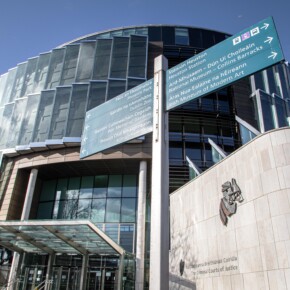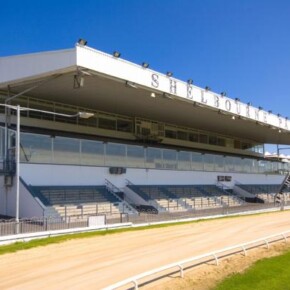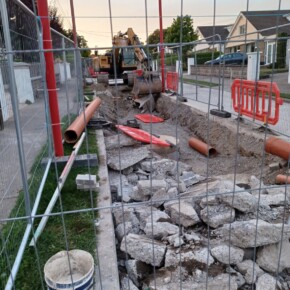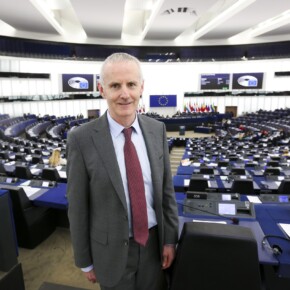€4.1 million Glenlion House loan was ‘never a home loan’ with site surveyed for development, trial hears
Padraig Conlon 06 Nov 2023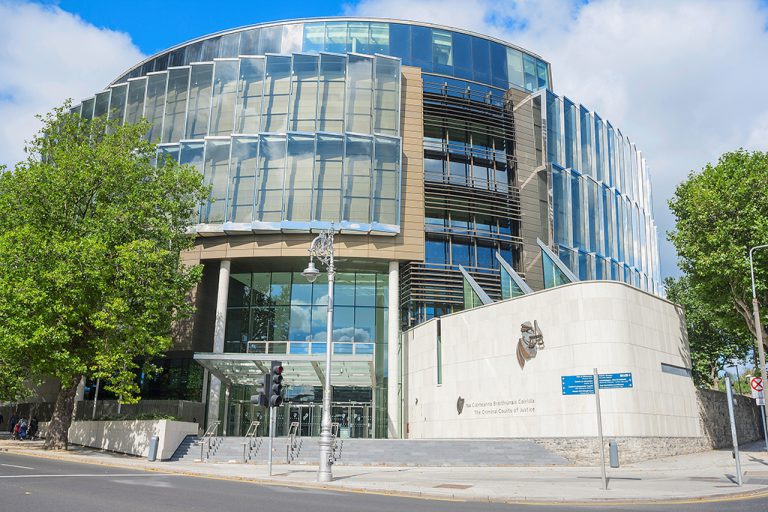
By Isabel Hayes and Eimear Dodd
A €4.1 million loan for Glenlion House in Howth was “never a home loan” and the site had been surveyed for potential development, the multi-million theft trial of former solicitor Michael Lynn has heard.
Mr Lynn (55), of Millbrook Court, Redcross, Co Wicklow is on trial accused of the theft of around €27 million from seven financial institutions.
He has pleaded not guilty to 21 counts of theft in Dublin between October 23, 2006 and April 20, 2007.
It is the prosecution’s case that Mr Lynn obtained multiple mortgages on the same properties, in a situation where banks were unaware that other institutions were also providing finance.
The financial institutions involved are Bank of Ireland, National Irish Bank (later known as Danske Bank), Irish Life and Permanent, Ulster Bank, ACC Bank, Bank of Scotland Ireland and Irish Nationwide Building Society.
Mark Mulcahy told the trial that he was introduced to Mr Lynn in the early 2000s when he was the manager of the Irish Nationwide Building Society(INBS)’s branch in Dun Laoghaire.
He agreed with Karl Finnegan SC, prosecuting, that Mr Lynn was introduced as “someone to get to know to do business with”.
He said he dealt with several mortgage applications from Mr Lynn between 2000 and 2002, which were repaid quickly.
He said he would have dealt with Mr Lynn during early applications, but as time went on, he dealt more with staff from Mr Lynn’s office.
Mr Mulcahy said Mr Lynn called him in late 2006 asking if the building society was lending for residential investment properties.
He said he told him the required paperwork and his colleague worked with Mr Lynn’s assistant on the application.
Mr Finnegan asked if he believed that the “successful history” with Mr Lynn meant that “you had a good system in place for taking his applications.”
Mr Mulcahy replied: “I would have been happy they would have been honoured”.
He agreed it was discovered later that these properties were not secured in favour of INBS, which wrote off the loans as “unrecoverable debt”.
He agreed he became aware in early 2007 that Mr Lynn and his wife had applied for a residential home loan to buy Glenlion House in Howth.
He said he spoke to Mr Lynn about this €4.1 million application and recalled it was initially turned down, but was later agreed.
He said the building society subsequently became aware the loan was not secured on Glenlion House and this debt was also written off.
Paul Comiskey O’Keeffe BL, defending, told the court that up until the Law Society intervened in October 2007 and his accounts were frozen, Mr Lynn had been making repayments on these and other loans.
He asked if Mr Mulcahy was aware Mr Lynn and his wife Brid Murphy never lived in Glenlion, to which the witness replied he didn’t know.
“Were you aware – and Michael Lynn says you were aware – that a survey was carried out and two potential development sites were identified on that site?” Mr Comiskey O’Keeffe asked.
“I don’t remember that,” Mr Mulcahy replied.
Defence counsel put it to Mr Mulcahy that at the time of the €4.1 million loan for Glenlion House, Mr Lynn’s loans with INBS had “exceeded the acceptable level” but that if this was a home loan, it would be within the limits.
“This was never a home loan, you were aware of that. This site had been surveyed for potential development,” Mr Comiskey O’Keeffe said.
“I don’t remember that to be honest,” Mr Mulcahy replied.
Orla Deignan, former assistant business banking manager for National Irish Bank, also gave evidence last Friday (3rd).
She told prosecution counsel that she was involved in processing a loan for Mr Lynn in early 2007, when her boss Noel McCole went on holiday.
Ms Deignan said she dealt with Mr Lynn’s secretary, Liz Doyle, and there was a “sense of urgency” with the application, which related to the purchase of four apartments.
Ms Deignan said this “wouldn’t be unusual for that era”, but that she felt “under pressure” to deal with it.
When asked if she would have recommended the application if she had known it was for anything other than those four properties, or for the purchase of properties abroad, Ms Deignan said: “Absolutely not”.
Mr Comiskey O’Keeffe started his cross-examination of the witness by asking: “You don’t accept you were negligent?”
“No,” Ms Deignan replied.
“You don’t accept your colleagues were negligent?”
“No.”
When brought through internal banking documents, Ms Deignan said she would be “surprised” to hear that the bank’s steering committee recommended that some information relating to Michael Lynn should not be recorded on the portal.
She said she was not aware of information being withheld by the bank “on the basis of legal advice”.
She agreed with Mr Comiskey O’Keeffe that one particular banking document that formed part of Mr Lynn’s loan application did not identify whose account it was.
“This was all taken in good faith,” she said.
Mr Comiskey O’Keeffe later told the court he was “not trying to establish (Ms Deignan) was negligent”, prompting Judge Martin Nolan to respond: “Even if she was negligent, is it any way relevant at all?”
The judge noted: “Your client got his loan” and the defence had been, “querying this lady for the last hour and a half on things she didn’t understand or investigate”.
“I can’t see how that is relevant to the issues before this jury.”
Also giving evidence, Sam Beamish told the court that he was formerly a director of business banking for Ulster Bank prior to his retirement, having joined the bank in 2004.
Mr Beamish said that in September 2006, Mr Lynn contacted the bank seeking financing for the purchase of 11 properties in Dublin as investment properties, with the loan totalling €3.65 mililion.
Mr Lynn requested that his own solicitors act in the case and that Fiona McAleenan would be acting for him, the court heard.
He said a formal offer letter for the loans was sent to Mr Lynn later that month containing the terms and conditions of the loans.
He said this was signed and returned by Mr Lynn in October 2006. The letter made it clear the loan was for the named 11 properties and no others, the court heard.
Mr Beamish said that in October 2006, the loan of €3.65 million was transferred to the account of Mr Lynn’s solicitor’s firm. “We assumed we had good security,” he said.
When asked what the actual case was, Mr Beamish said: “We didn’t have security. We had no security.” He said the €3.65 million lent to Mr Lynn “wasn’t recovered to the best of my knowledge”.
Mr Beamish agreed with Mark Lynam SC, defending, that he had never met Mr Lynn, never spoken to him and never acted as his banker.
The trial continues before Judge Martin Nolan and a jury.



